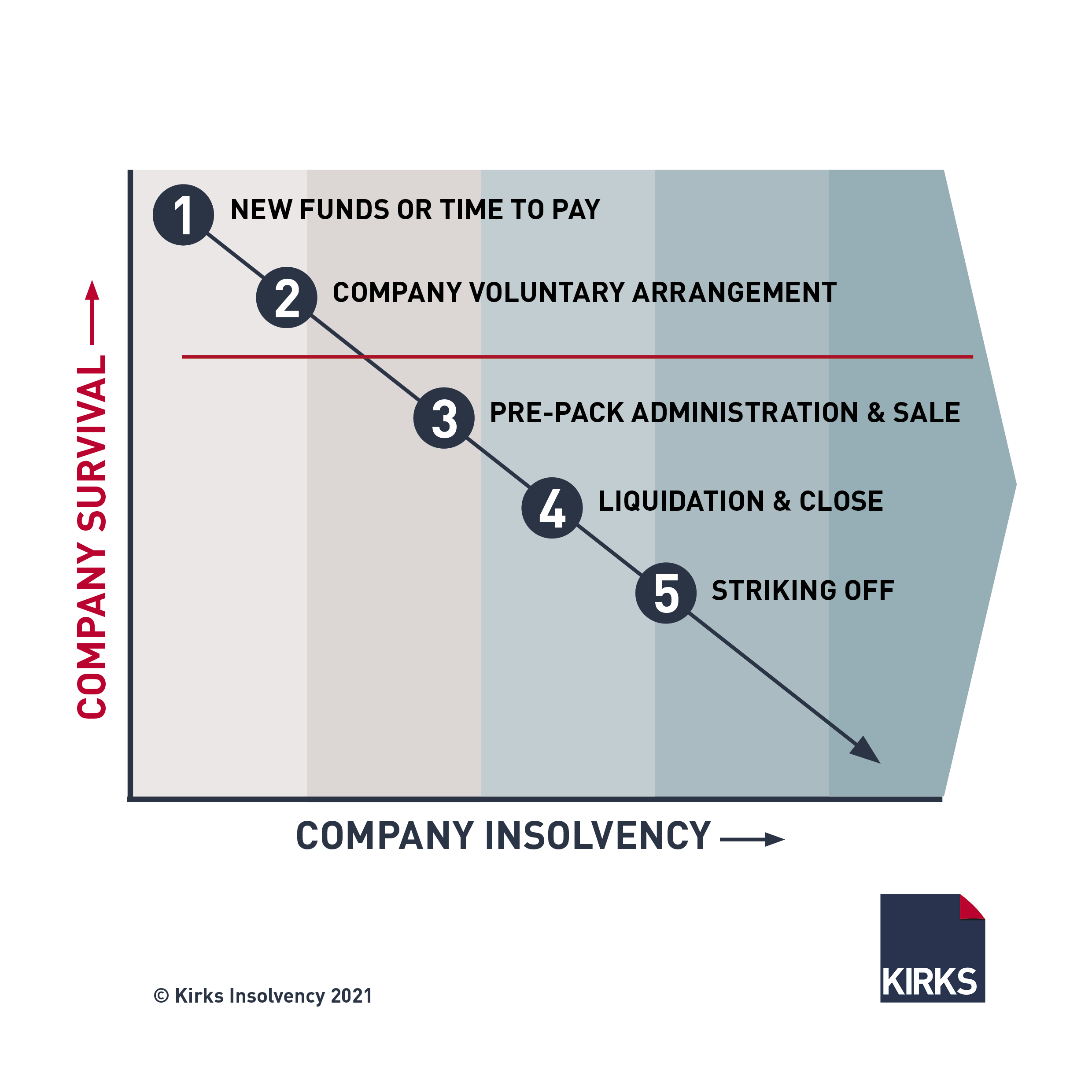The Main Principles Of Insolvency Practitioner
The Main Principles Of Insolvency Practitioner
Blog Article
Insolvency Practitioner - Questions
Table of ContentsSome Known Factual Statements About Insolvency Practitioner The smart Trick of Insolvency Practitioner That Nobody is DiscussingThe Basic Principles Of Insolvency Practitioner The Best Guide To Insolvency PractitionerInsolvency Practitioner Can Be Fun For EveryoneOur Insolvency Practitioner IdeasSome Of Insolvency Practitioner
Insolvency is when liabilities are better than the value of the firm, or when a debtor can not pay the financial obligations they owe. A company can become bankrupt due to a number of scenarios that cause bad capital. When encountered with bankruptcy, a business or individual can contact financial institutions directly and restructure debts to pay them off.
Bankruptcy can lead to insolvency process, in which lawsuit will certainly be taken against the bankrupt individual or entity, and properties. Insolvency Practitioner might be sold off to pay off outstanding financial debts. Local business owner might get in touch with lenders straight and restructure debts right into more workable installments. Financial institutions are typically amenable to this approach due to the fact that they wish to be paid back and avoid losses, also if the repayment gets on a delayed schedule.
The owner develops a proposal detailing exactly how the financial obligation may be reorganized utilizing expense decreases or other prepare for assistance. The proposition shows financial institutions exactly how the company might create enough capital for rewarding procedures while paying its financial obligations. Generally, a forgiven debt may be considered earnings by the Internal Income Service (IRS).
The Best Strategy To Use For Insolvency Practitioner
When a company needs to pay increased prices for products and solutions, the firm passes along the price to the customer. As opposed to pay the raised price, many consumers take their organization somewhere else so they can pay less for a product and services. Shedding customers causes shedding income for paying the company's creditors.
When procedures stop, so does the company's earnings. Some business become bankrupt due to the fact that their items or services do not advance to fit customers' altering demands.
What Does Insolvency Practitioner Mean?
Costs go beyond earnings and bills stay unsettled. Cash-flow insolvency occurs when a firm has the properties to cover their financial obligations yet they are in the wrong type, such as genuine estate instead of liquid funds. Balance-sheet insolvency, on the other hand, indicates a lack of assets in any type of kind to cover debts.
The internal revenue service states that an individual is insolvent when the overall responsibilities surpass total properties. Insolvency Practitioner. A bankruptcy, on the other hand, is a real court order that illustrates exactly how a financially troubled individual or organization will pay off their financial institutions, or how they will certainly offer their assets in order to make the payments
The Best Guide To Insolvency Practitioner
When a firm or person is insolvent, they can not meet their monetary obligations. Insolvency is not the very same as insolvency, although a firm that has actually come to be financially troubled might file for bankruptcy. Bankruptcy is the state of not being able to pay your obligations while insolvency is a legal process to release your financial debts.
Understanding the factors that can cause bankruptcy, such as overspending, can assist Go Here you stop bankruptcy and its consequences.
Not known Factual Statements About Insolvency Practitioner
It is popular that supervisors and police officers of firms (and managers of minimal liability companies) owe fiduciary tasks to their companies and their shareholders (or members). These fiduciary commitments are specified by state laws and, though there are variations from state to state, they usually consist of a responsibility of commitment and an obligation of care.
The responsibility of care needs supervisors and police officers to exercise diligence, to make informed choices, and to act in great confidence to ensure that their activities are in the finest rate of interest of the company. Beyond the extent of this conversation, some states permit these obligations to be limited either by so noting in the organizational records or abiding with various other needs.
A Biased View of Insolvency Practitioner

Take care about offering shareholders favoritism at the expenditure hop over to here of creditors (e.g., accrediting and moneying a reward or a stock redemption). Beware about advantageous treatment in between classes of investors. Clear click now up initiatives to discover all the truths prior to taking a certain program of activity; supervisors ought to really think that any kind of choices made remain in the very best passions of the firm in its whole (i.e., decisions will be examined in hindsight due to the result of such actions on the firm).
In any type of insolvency or insolvency proceeding, settlements made to particular financial institutions at the expense of various other financial institutions can be clawed back, especially if there is some connection in between the company and the creditor. Think about suggesting at an annual investor conference (or any various other meeting of shareholders) a resolution affirming that all previous service decisions and activities taken by the directors and officers of the company were taken in excellent faith after an exercise of affordable care.
Unknown Facts About Insolvency Practitioner
Completely disclose any type of individual or company connections with parties on the other side of purchases including the company to avoid the appearance of a dispute of passion. In assessing prospective fund raising transactions or a sale of assets of the struggling company, know that these transactions might be inspected later in light of any succeeding expansion of supervisors' fiduciary responsibilities to include lenders.
Report this page